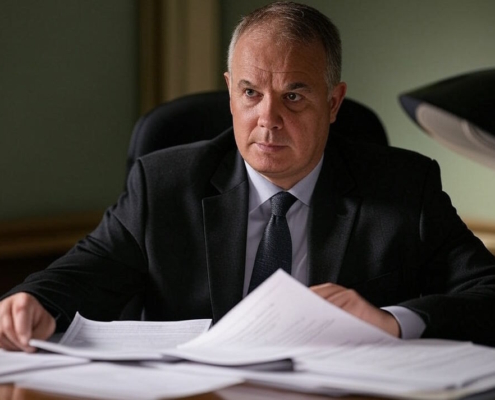What does a trustee do?
The individual responsible for safeguarding the assets included in a trust is known as a trustee. He or she is in charge of overseeing the trust’s financial affairs in accordance with the instructions provided. Until their incapacity or death prevents them from fulfilling the role, the person who creates the trust often serves as the trustee. A successor trustee assumes control thereafter. Tasks may include keeping track of revenue and expenditures, distributing assets to beneficiaries, reporting and paying taxes on the trust’s income, and documenting any other transactions that may arise.
A trustee is simply the designated individual responsible for overseeing the management of a trust’s assets.
Being sure to do what’s best for the trust is the most critical part of being a trustee. It is essential to select a trustee who can set aside their own interests and carry out the trust’s directives without question when making this appointment.
Tips for choosing an appropriate trustee
It might be difficult to choose the best trustee. There is a lot of pressure to “get it right,” which can be especially overwhelming if you have children that your trust will support.
However, you can gain more assurance in your choice by considering the following points. A Trustee can be practically anyone you trust who is at least 18 years old.
- Friends/Family: This is a typical path, but it can lead to tension and animosity within the family. Having a reliable friend or family member on hand can make this option worthwhile. It goes without saying that someone close to you will benefit from knowing and understanding how your family works. Make sure that person is up for the challenge.
- Lawyer or attorney: This is a good choice if you don’t have a close friend or family member who can take on the role. Alternatively, hiring a lawyer or other unbiased third party can be a wise choice if you are unable to make a decision and are concerned about potential animosity or strife among your loved ones. Another advantage of having a long-term relationship with your attorney is that they will have insight into your family. Your beneficiaries may end up with less money because of this, so keep that in mind.
- Trust Company: There are a lot of good reasons to hire a trust company. Despite the service’s cost, it may be worthwhile if beneficiaries are likely to dispute anything. A trust company can handle your estate with the firmness and candor of a court, denying requests when they are unwarranted and protecting your legacy in any way they think is right, all under the direction of the trust. Keep in mind that if you go this route, it may be difficult to remove a trust company.
What are the responsibilities and powers of a trustee?
Among a trust’s many responsibilities is the duty to execute the will of the trust. Preserving your legacy is the end aim of any trust. So, to simplify the question of “what is the role of a trustee?” or “what does a trustee do?” keep in mind that there are numerous facets to the position. Trustees are obligated to perform some or all of the following:
- Behaving as a fiduciary: Being a fiduciary entails a great deal of responsibility with regard to safeguarding the trust’s assets and their distribution. In fact, some people believe that a trustee should prioritize the trust’s affairs above their own personal finances.
- Familiarize yourself with the trust’s basic rules and make sure the assets are safe: To do this, a trustee must understand the trust’s basic rules, know who all the beneficiaries are, and be able to see and check all the records to make sure they’re correct and in order.
- Invest assets when required: A trustee is obligated to invest assets when directed to do so in order to preserve them both now and for the future.
- Manage the trust: A trustee’s duties include distributing and administering assets to beneficiaries in accordance with the terms of the trust.
- Ongoing decisions: Trustees should be able and willing to decide when and how beneficiaries receive payments and on other trust provisions as needed. Keep in mind that these decisions pertain to discretionary powers granted to a trustee. For instance, the trustee may be required to distribute all income earned to the beneficiaries. This is a mandatory provision, so the trustee doesn’t really have much say in it. However, the trust may state that the trustee can make extra distributions as needed. This is discretionary, so the trustee has to assess the legitimacy of the need and decide how much to distribute.
- Maintain records and handle tax-related paperwork: Trustees are responsible for both organizing and filing tax returns as well as keeping track of and filing financial documents and records.
- Respond to questions from beneficiaries and communicate with them as necessary: Examples of communication include giving an overview of tax reports and supplying statements and account information. Part of your job as a trustee is answering beneficiaries’ questions and making sure the right people get the right information at the right time.
Furthermore, a trustee’s responsibilities can evolve over time. Typically, when a person establishes a trust, they also become the beneficiary and have greater autonomy over their own affairs. This makes sense because they are ultimately accountable for themselves. In the event of their incapacity or death, the individual you designate as successor trustee takes over.
What are the origins of the trustee’s duties?
As a result of being legally bound to fulfill the intentions of the grantor in establishing and supporting the trust, the trustee has five overarching duties: to exercise reasonable care, to adhere to the trust deed, to show undivided loyalty to the trust, to devote one’s undivided attention to the trust, and to report back to the beneficiaries.
Responsibility to Exercise Common Sense
The standard for the Trustee’s conduct, rather than performance, is to act sensibly and capably in all matters pertaining to the trust. For example, if the Trustee prudently invests the Trust’s assets but the stock market crashes, the Trustee would not be held responsible for the loss. On the other hand, if the Trustee bets everything on Bitcoin, the Trustee would be held responsible for the harm.
Obligation to Execute Trust Provisions
Trustee duties include carrying out the grantor’s intent as stated in the trust document, with the beneficiary’s wishes being subordinate to those of the grantor. The trustee is effectively the agent of the grantor, which means that the beneficiary (or the state in the case of Medicaid) cannot force the trustee to pay the beneficiary any money that would otherwise be due to them if the grantor limits access to it because of the beneficiary’s addiction or physical or mental condition that qualified them for Medicaid and other support from the state.
Duty to Stay True to the Trust
If the trustee does anything that indirectly or directly affects the trust and the beneficiary, they must be loyal to the trust at all times. If the trustee does something that benefits themselves, the court can isolate those actions at the beneficiary’s request. This high standard is strictly enforced when the trustee behaves in a way that puts the trustee at odds with the trust.
In this case, the trustee is individually responsible for any gain to the trustee or loss to the trust from dealings in which the trustee gained personal advantage, even if the dealings were otherwise fair. Trustee fees are allowed, but they can only be “reasonable.”
Even outside the trust, there is a presumption that the trustee has undue influence over the beneficiary, even though commercial transactions with the beneficiary are allowed. This presumption may be refuted in cases where the beneficiary has been completely apprised or has gotten advice from another party.
Obligation to Provide Personal Attention
Though the trustee may hire professionals like stockbrokers, real estate brokers, and custody agents, and may vote stock via proxy, the trustee may not delegate the administration of the trust. The trustee may only engage competent financial, legal, and accounting experts.
With the right oversight and investment policy in place, the trustee can hire an advisor or manager to handle the trust’s assets.
Accountability to the Beneficiary
In order to fulfill the grantor’s intent as stated in the trust, the trustee must be accountable for his or her actions. This includes maintaining records and putting together a written record of the trust assets for the beneficiary. The accounting must show the type, value, and management of the trust assets, as well as a written summary of the principal receipts, principal payments, residual principal on hand, received income, income payments, and leftover income. The accounting must be complete and provided in a comprehensible form at the appropriate times.
Unless otherwise stated in the trust, the assets’ tax cost basis and beginning balance are determined by the trust’s terms. In the absence of a definition of the beginning balance method, the assets’ value in the federal or state estate tax returns for a living trust or the inventory in the trust under a will are used. Such accountings are performed every year.
In the event that the trustee commits any mistake or fails to take any action with respect to the trust’s assets, the courts have the authority to release the trustee from this responsibility upon filing an appropriate accounting detailing the trustee’s actions during the end of their tenure.
Unique Responsibilities Derived from Core Duties
As part of each of these broad responsibilities, the trustee is also required to carry out particular trust activities, such as managing, separating, allocating, and safeguarding trust assets. The Duty of Loyalty states that it is improper to mix trust assets with non-trust assets in order to maximize the value of trust assets.
The “Prudent Man Rule” is based on this duty and attempts to bring the trustee’s interests of the remainderman and the income beneficiary into harmony by directing the assets to generate income for the income beneficiary while handling them carefully for the remainderman.
Under the Duty of Loyalty, the trustee must keep all information pertaining to the trust strictly confidential and must only disclose it to third parties to the extent that it is required by law. No one, including the beneficiary’s child, the remainderman, or anyone else with an indirect or contingent interest, may direct the Trustee to share information about the trust.
The trustee is also responsible for determining the right to income and for separating it from principal. This is especially important when the income beneficiary is not the remainderman. Unlike other laws, such as the Federal Tax Code, the jurisdiction’s laws determine what is principal and what is income, so a receipt may be considered principal for trust purposes but income for tax purposes. Allocation is easy with simple disbursements and receipts, but problems arise with complex assets.
Also, unless the trust says differently, the trustee must be fair and impartial and treat all beneficiaries the same. If the trust is unequal, the trustee must act in accordance with the grantor’s wishes rather than their own biases. The trustee also has to strike a balance between the income beneficiaries’ and the remainderman’s competing equitable interests, which can be tricky, especially when it comes to investments and information disclosure.
The Trustee’s Other Responsibilities
Tax filings (including estate, income, gift, sales, and property taxes), filings with the Security and Exchange Commission (SEC) when required, compliance with banking regulations (in the case of a national bank as trustee), and, most recently, the Corporate Transparency Act are all examples of governmental regulations that necessitate additional actions beyond those already required by the trust.
Executor vs. trustee
The difference between a trustee and an executor boils down to whether the person is administering a trust or a will. A trustee is responsible for managing the assets within a trust and distributing them according to the terms of the trust, while an executor is in charge of an estate and the distribution of assets after death according to the terms of the will.
What is the role of a successor trustee?
In most cases, the person who creates the trust acts as trustee until they become incapacitated or die. In such a case, the successor trustee takes over. If the successor trustee is unwilling or unable to fulfill their role, it is wise to appoint a replacement in case the original nominee is not on hand.
When is the deadline for a trustee to settle a trust?
The time it takes to settle a trust depends on several factors, including the complexity of the trust, any necessary provisions, the age of the beneficiaries, and whether or not the trust is active for the benefit of minor children. In general, it takes between twelve and eighteen months to settle a trust and distribute all assets, but this can vary widely depending on the trust and the trustee’s actions.
What is the pay for a trustee?
The term “reasonable compensation” refers to the amount that a trustee receives from the assets of a trust; on occasion, the amount may be defined by the trust itself, though this occurs rarely.
Frequently Asked Questions
Trustee duties are well-known and understood, but there are still many questions that arise. To help alleviate any anxiety or confusion that may accompany taking on this responsibility, take a look at a list of some of the most common questions.
1. Are trustees immune from individual liability?
An individual serving as a trustee is personally responsible for making decisions that are in the best interest of the trust and its beneficiaries. To safeguard themselves, trustees should maintain precise and comprehensive records of all financial dealings and distributions. Last but not least, a trustee should thoroughly familiarize themselves with the instructions given by the trust.
2. How are beneficiary and trustee roles different?
The role of a trustee differs from that of a beneficiary in that the former receives the benefits of the trust while the latter is responsible for its administration and the distribution of its assets to the designated beneficiaries (typically a child or other family member).
Conclusion
The success of a Trustee’s work depends on everyone’s clear understanding of their role and the obligations placed on them. If everyone is on the same page, then everyone can do their best work.






























